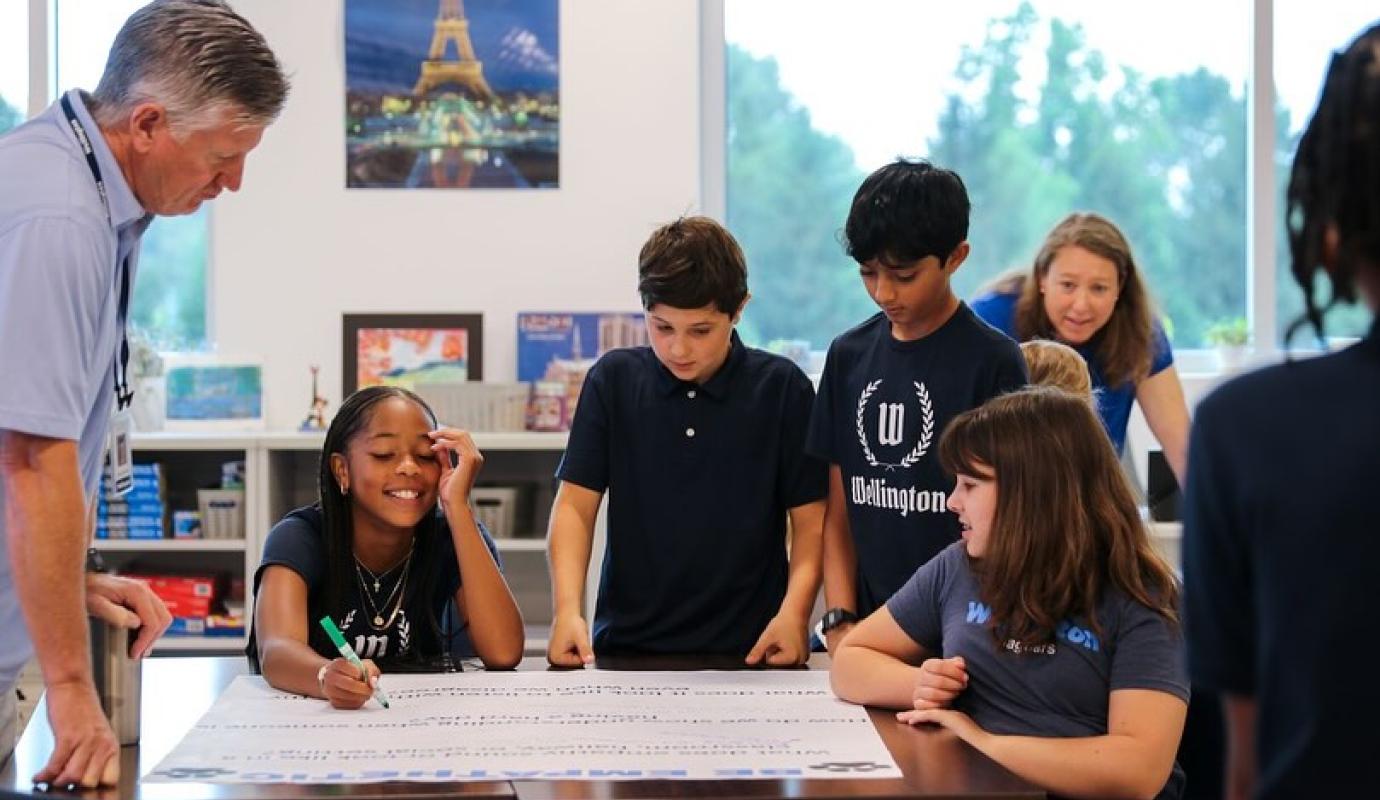At Wellington, time is our most valuable teaching tool. We design the school day to give students what matters most: depth in the fundamentals, intentional challenge, and the space to think, create, and collaborate.
A great school day is not an accident. At Wellington, academic leaders review our schedules and course design every year to be sure students have the time, support, and challenge they need. The result is a day that feels purposeful, balanced, and joyful from early childhood through grade 12.
Depth in the Fundamentals
Strong thinkers start with strong foundations. In the early years through grade 10, our schedule prioritizes time in literacy, writing, mathematics, science, and world language. That time is used well: small-group instruction in early childhood and lower school places about six students with a certified educator for reading and math, allowing children to move at the right pace and build confidence. In middle school, adding instructional time in English language arts in 6th grade, a three-path math structure, and honors humanities helps every student stretch with the right amount of support.
Teaching for Curiosity and Stamina
We expect meaningful engagement in every classroom. Students analyze, debate, design, write with voice, and revise their thinking. Longer class blocks reduce transitions and invite deeper labs, seminars, and projects. Advisory and built-in access to teachers help students plan, reflect, and manage a healthy workload. Over time, they build the academic stamina that college and life demand.
Time That Reflects Our Values
How we use minutes says what we value. In grades 6–8, students experience a 6th grade world language exposure year before choosing a path, honors options in the humanities for added stretch, and Lyceum, an interdisciplinary course where students lead Socratic seminars and create original work for real audiences.
In the upper school, the 5/4 schedule increases weekly instructional time and the number of class meetings to three per five-day week, for 185 minutes total. Students connect regularly in advisory and use Task Time to see teachers and collaborate with peers. Pathways programming places college counseling, executive function, global engagement, service, and leadership at the right moments in each year. Blue and White Weeks steady assessment load, and homework is not due the very next day for mid-week classes.
Choice With Purpose in Grades 11–12
By junior and senior year, students lean into interests through a wide range of electives and advanced coursework while completing graduation requirements. Honors Humanities 9 and 10 lay the groundwork for connected, rigorous thinking. In grades 11 and 12, many opt into AP-level work or independent research as part of a coherent pathway. Last year, 42 students sat for 93 AP exams, and the upper school offered nearly 150 courses across departments.
Continuous Improvement
For 2025–26, we have increased time where it has the greatest impact while preserving the elements families value: strong relationships, deep learning, and a community that knows each student well.
Learning You Can See
Three times a year, Learning Showcases invite families to hear directly from students about how they tackled a challenge, what they created, and what they learned. The work on display reflects a day built for thinking that lasts.
Why it Matters
When students have time for fundamentals, room to explore ideas, and support from teachers who know them, school feels like the best part of the day. That is by design at Wellington.
